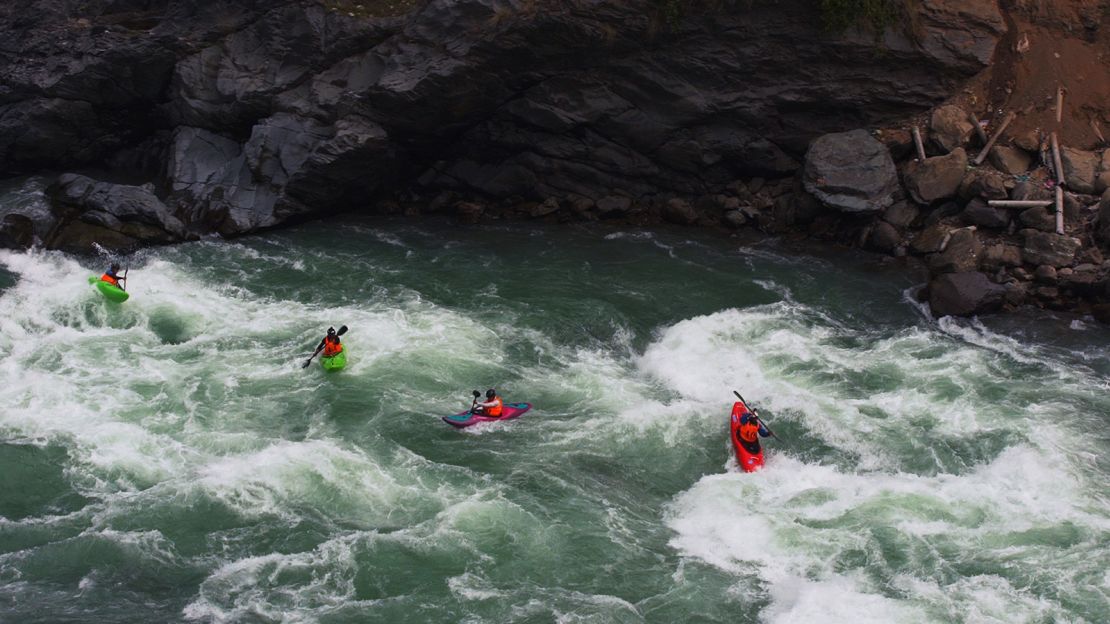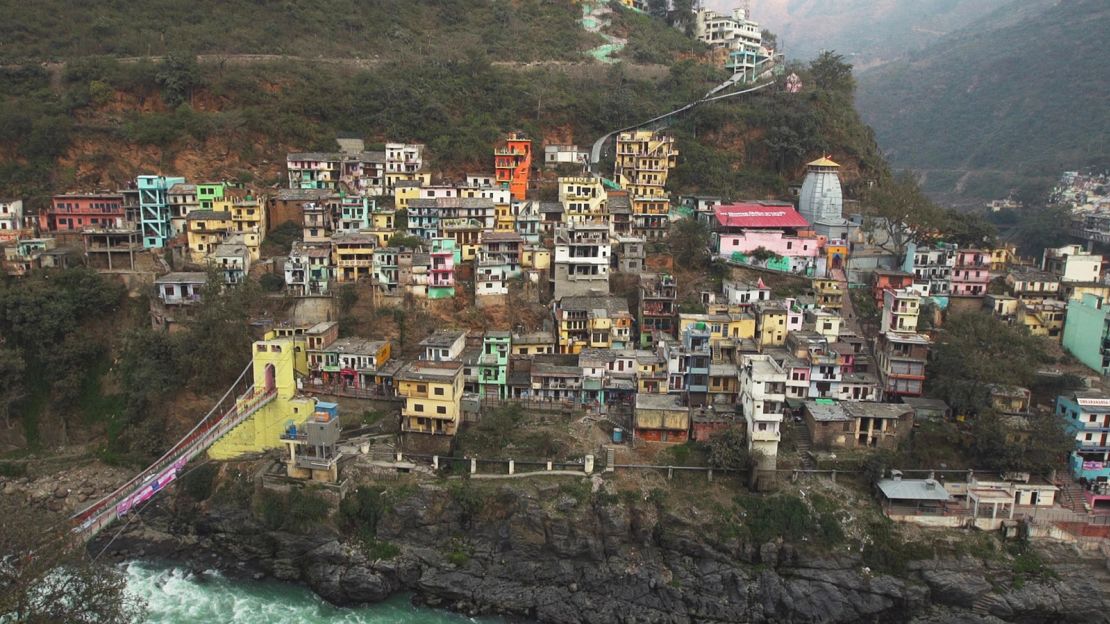The loudspeaker blares and more than 50 kayakers launch into the jade green River Ganges at once.
This is the grand finale of the Ganga Kayak Festival. Known as the “mass boater cross,” the spectacle closes the only festival of its kind on India’s most sacred river.
The annual event takes place in February in Devprayag, a town in Uttarakhand, North India. Located on a peninsula, the Bhagirathi and Alaknanda rivers run along either side of Devprayag and meet to become the River Ganges.
At the confluence of these rivers is a steep gradient, where rushing water gains velocity, creating what is known as a ‘rapid’ section of the river.

It’s the perfect environment for whitewater kayaking, according to Bhupendra Singh Rana, founder of the Ganga Kayak Festival.
Rana grew up downstream of Devprayag and was inspired to take up kayaking after seeing boaters on the Ganges as a child.
“The day I got in a kayak for the first time, I loved it. I was hooked for the rest of my life,” he says.
Rana became India’s national champion of the sport in 2011 and competed internationally at the Adidas Sickline Extreme Kayak World Championships – one of the biggest events on the kayak racing calendar – until it was discontinued in 2018.
The 35-year-old started the Ganga Kayak Festival in 2013 to give local athletes a chance to practice at an advanced level.
“Just providing the platform for them on a bigger rapid makes them more skilled boaters,” he says.

Over three days kayakers take on the 400-meter course, competing in solo contests and in heats of four. The mass boater cross sees up to 60 kayakers simultaneously race to the finish line.
While the Ganges is well known as India’s holiest river, Rana hopes to attract thrill seekers to Uttarakhand, as well as travelers interested in culture and heritage.
He has ambitious plans to expand the kayaking festival, by incorporating paddle boarding, rafting, cycling and running events.
“From here this competition has a great potential,” he says. “We can make this just not just the kayaking competition, but also a big adventure festival.”
For now, however, sharing his beloved sport with his own compatriots is more than satisfying.
“My kayak showed me some of the places that not every human being can go.”






